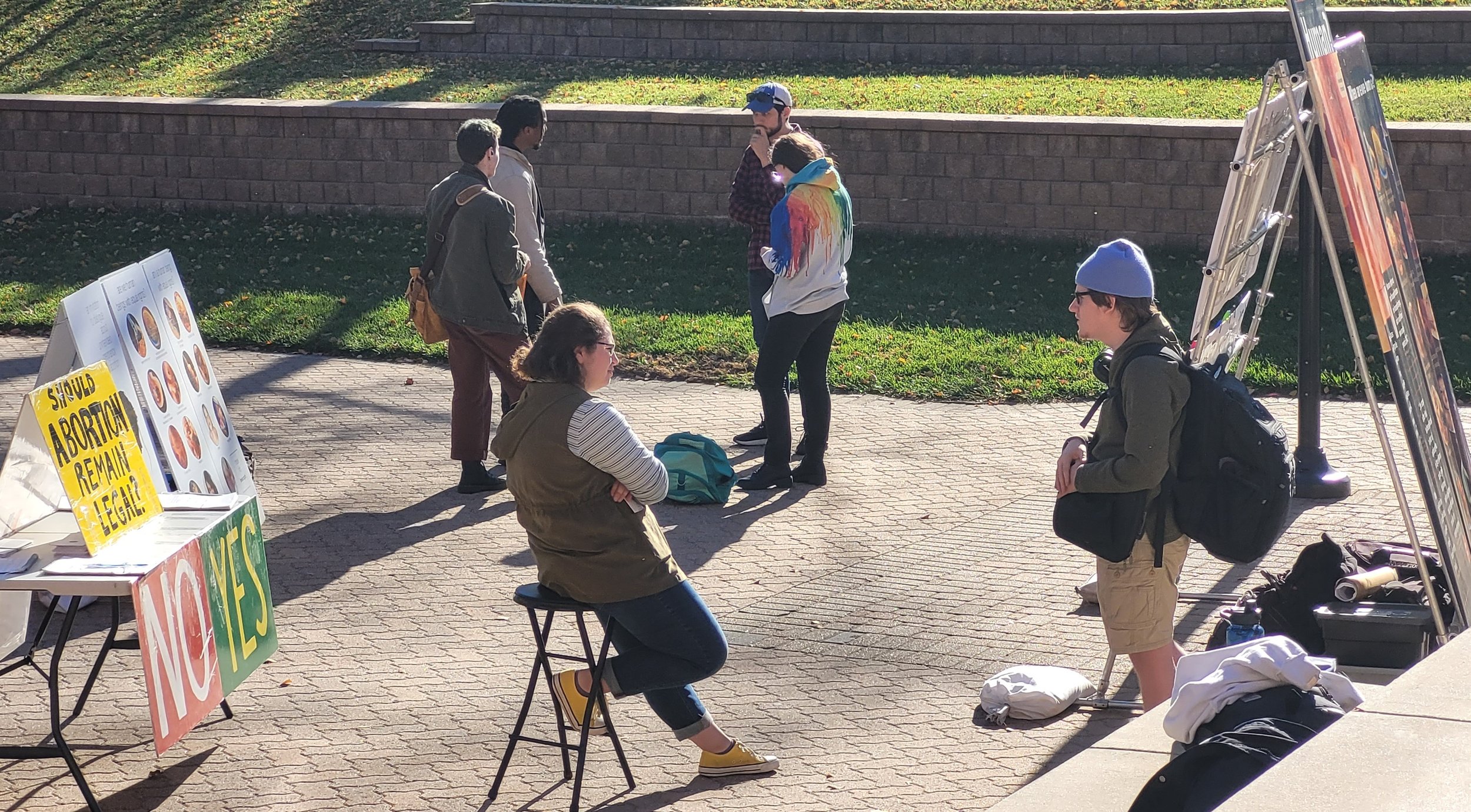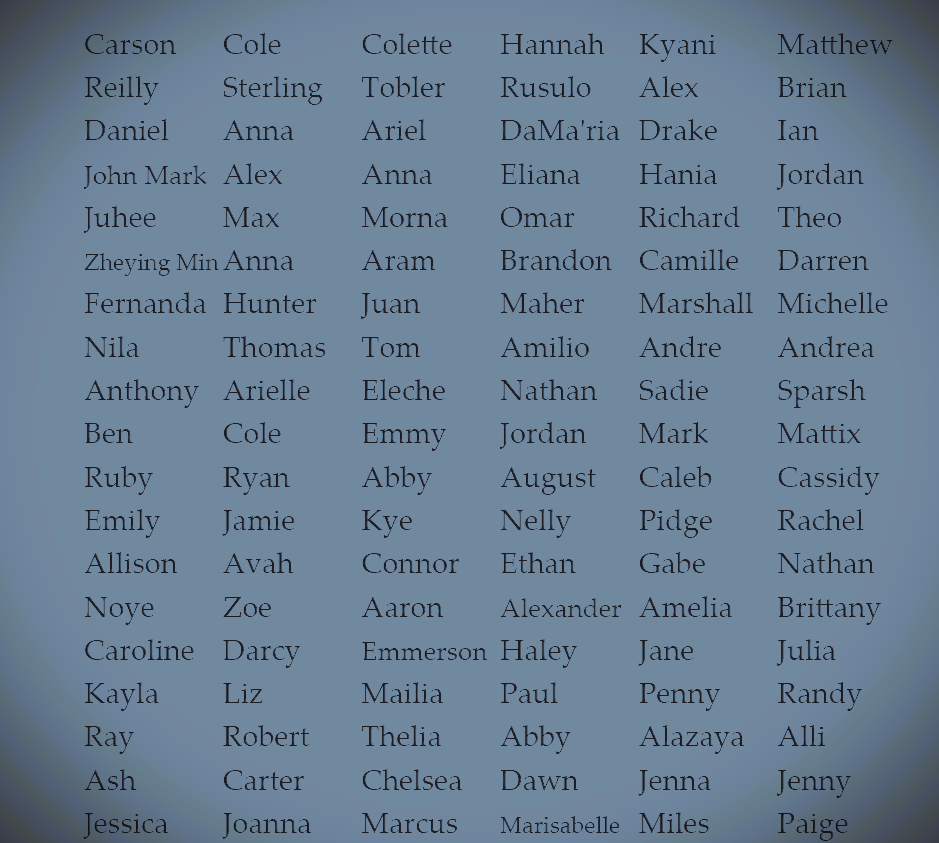Outreach at UT Austin, November 2023
One morning at Colorado State University, a student I will call “Heather” approached our poll table. Her demeanor was cold, and she matter-of-factly blurted out, “I believe abortion should be legal because many women will die in childbirth. Abortion should be legal for any reason.”
This conversation could definitely be challenging, I thought to myself.
Ellerslie Discipleship Training in Colorado, September 2023
I realized it was important for me to understand what was motivating Heather’s passion, so I began asking her questions. Heather shared with me that she had a rough childhood. Her mom, grandma, and several aunts were single mothers. She had watched them struggle as they tried to make it alone. I spent time acknowledging how hard that must have been.
As the conversation progressed, I was able to walk through many of the pro-life arguments, and she seemed receptive.
After having a serious discussion about abortion, I began to inquire about her personal life. She was from a different state and had not made many friends at college. I could tell she was lonely and appreciated the opportunity to talk to someone.
At one point, the conversation shifted to spiritual matters. I had the opportunity to share the hope of the gospel with her, and we talked about why we need a Savior. She was quite open to discussing her beliefs with me. I asked Heather if she had a Bible. She told me that she did, but she had not brought it with her to college. I gave her the Gospel of John, which she gladly received.
Throughout the course of the conversation, Heather began to lighten up. At one point we both were laughing as she showed me pictures of her pets and shared stories from her science classes.
By the end of the conversation, I felt like I was talking to a different person. Her whole attitude had changed, and she seemed to be enjoying our time together. Before Heather left, she said, “Thank you so much for having this conversation. This was very meaningful!”
As I reflected on this interaction, I was reminded how important it is to show people that we care about them and to take an interest in their lives. Although Heather did not completely change her mind during our conversation, I am confident that she is more open to discussing pro-life issues. The first step in being able to reach someone is to show them we care. When we begin there, we end up having great opportunities to make a difference in their lives.












